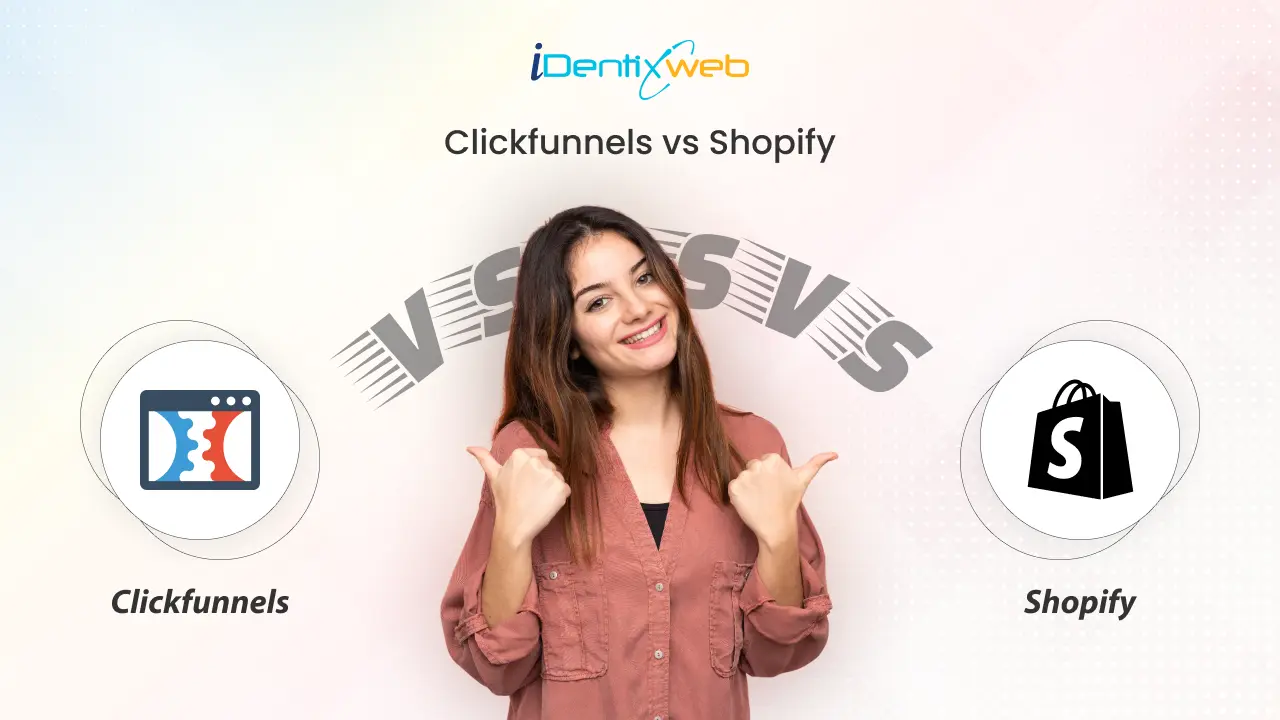
When it comes to building or scaling an online business, two of the most talked-about platforms are Shopify and ClickFunnels. Both are powerful tools for selling online, but they serve very different purposes.
Shopify is built for running a complete ecommerce store, while ClickFunnels is focused on creating high-converting sales funnels. If you’re comparing ClickFunnels vs Shopify and wondering which one fits your business best, this guide will help you decide.
What is ClickFunnels?
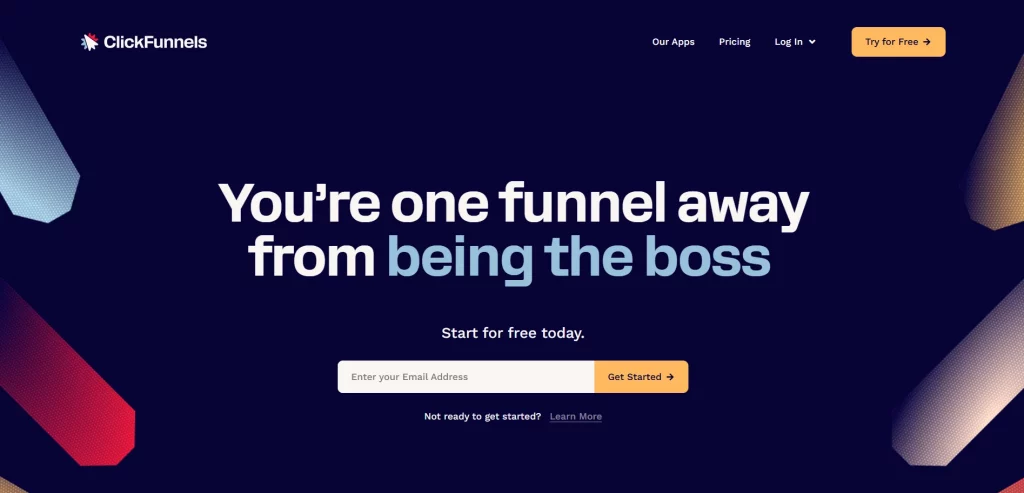
ClickFunnels is a sales funnel builder designed to convert leads into paying customers. After signing up, you can access your dashboard via ClickFunnels login to set up landing pages, lead capture forms, and sales funnels. Instead of focusing on a full online store, it helps you create landing pages, lead capture forms, and sales funnels that guide customers toward a purchase.
What is Shopify?

Shopify is an ecommerce platform that allows you to build a complete online store. It’s designed for businesses that want to showcase products, manage inventory, accept payments, and handle shipping all in one place.
Shopify vs Clickfunnels Pricing Plans
When comparing Shopify vs ClickFunnels, pricing is an important factor. Shopify starts at a lower cost and scales well for online stores, while ClickFunnels is pricier but focuses on funnels and marketing tools.
The right choice depends on whether you need a full store or a funnel system.
Clickfunnels Pricing
- Basic – $127/month: Funnel builder with essential features.
- Pro – $157/month: Adds more funnels, pages, and advanced integrations.
- Funnel Hacker – $208/month: Unlocks unlimited funnels, priority support, and advanced training.
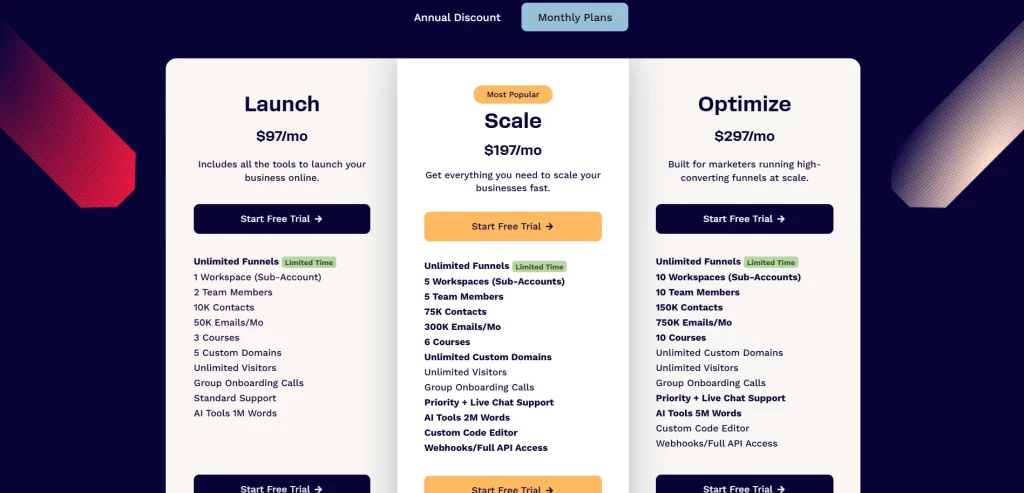
Shopify Pricing
- Basic – $39/month: Best for beginners and small businesses.
- Shopify – $105/month: Includes advanced reports and better shipping rates.
- Advanced – $399/month: Offers advanced reporting and lower transaction fees.
- Shopify Plus – Custom pricing: Tailored for enterprise-level businesses.
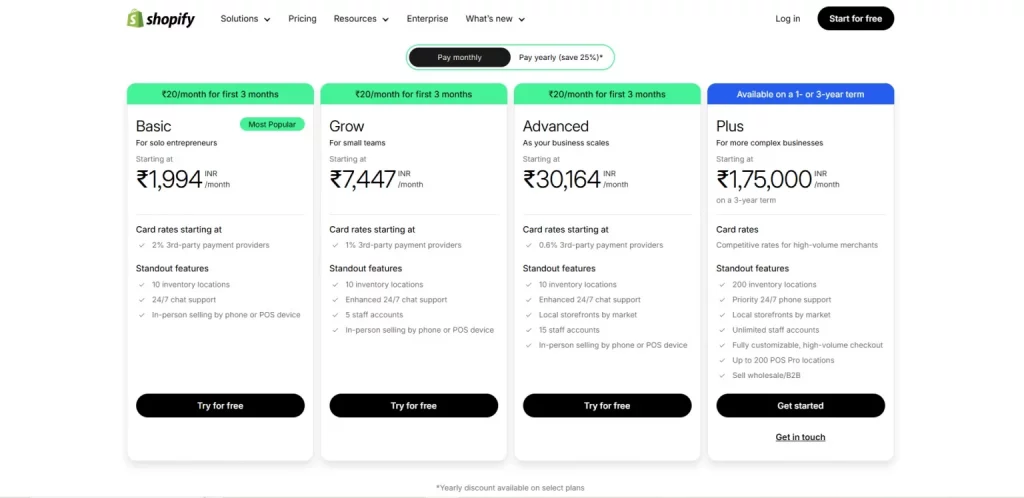
Let’s explore the side-by-side key features of Shopify vs ClickFunnels to understand which platform suits your business best.
Shopify vs ClickFunnels: Key Differences
| Feature | Shopify | ClickFunnels |
| Purpose | Build a complete ecommerce store | Build high-converting sales funnels |
| Best For | Businesses selling multiple products | Businesses selling one or few offers |
| Payment Options | Multiple gateways like PayPal, Stripe | Limited, mainly Stripe & PayPal |
| Website Features | Blog, SEO, storefront, POS | Landing pages, webinars, upsell funnels |
| Scalability | Excellent for long-term online stores | Best for short-term campaigns & promotions |
| Inventory Management | Robust inventory and product tracking | Not designed for inventory management |
| Customization | Wide range of themes and apps | Drag-and-drop funnel builder |
| Marketing Tools | SEO, email apps, discounts, abandoned cart recovery | Built-in email automation, upsells, downsells |
| Customer Experience | Full shopping cart + checkout system | Guided funnel flow with fewer distractions |
| Integration Options | Thousands of third-party app integrations | Limited integrations compared to Shopify |
ClickFunnels vs Shopify: What Are the Pros & Cons?
Shopify Pros & Cons
Pros
- Easy to set up and manage an online store.
- Supports multiple payment gateways (PayPal, Stripe, etc.).
- Large app marketplace for extra features..
- Great for selling multiple products and managing inventory.
- Scales well for long-term ecommerce growth.
Cons
- Requires apps for advanced funnel features.
- Transaction fees unless using Shopify Payments.
- Can get expensive as you scale with apps and add-ons.
- Limited built-in marketing automation compared to ClickFunnels
ClickFunnels Pros & Cons
Pros
- Built for creating high-converting sales funnels
- Drag-and-drop funnel builder with ready-made templates
- Excellent for single products, services, and digital offers
- Includes email marketing automation and upsell/downsells
- Affiliate program management (Backpack feature)
Cons
- Higher starting price than Shopify
- Not designed for full eCommerce or large product catalogs
- Limited payment gateways (mainly Stripe & PayPal)
- Fewer integrations compared to Shopify
- Steeper learning curve for beginners
Shopify vs ClickFunnels: Which One Should You Choose?
If you choose Shopify, it’s the best option when you want to build a complete online store with multiple products, manage inventory and shipping efficiently, and grow through SEO and long-term branding. It’s ideal for entrepreneurs looking to scale a sustainable ecommerce business.
If you choose ClickFunnels, it works best when selling digital products, courses, or services. It’s designed for creating high-converting funnels for one or a few offers, focusing heavily on ads, webinars, and email marketing campaigns. This makes it perfect for businesses that prioritize a sales-driven approach rather than managing a full online store.
Final Thoughts: Shopify vs Clickfunnel
If you want to build a scalable online store, Shopify is the ideal choice. However, if your focus is on creating high-converting funnels, generating leads, and boosting conversions, ClickFunnels is the better option. For businesses looking to get the best of both worlds, integrating Shopify and ClickFunnels allows you to manage your store while leveraging powerful funnel and marketing tools to maximize results.
Whether you’re just starting or scaling your business, your choice between ClickFunnels vs Shopify will depend on your business model and goals.
Still deciding? Explore more comparisons beyond Shopify vs BigCommerce and see how Shopify stacks up against other top eCommerce platforms, including:
- Wix vs Shopify
- WooCommerce vs Shopify
- Shopify vs Shopify Plus
- Ecwid vs Shopify
- Shopify vs Squarespace
- Bigcommerce vs Shopify
- Shopify vs Weebly
- Big Cartel vs Shopify
- Shopify vs GoDaddy
- Sellfy vs Shopify
- Stripe vs Shopify
FAQs Clickfunnels vs Shopify
1. Can ClickFunnels replace Shopify?
No, ClickFunnels doesn’t manage inventory or large product catalogs like Shopify does.
2. Is Shopify easier to use than ClickFunnels?
Yes, Shopify is more beginner-friendly, while ClickFunnels has a learning curve.
3. Do both support payment gateways?
Shopify supports many gateways; ClickFunnels mainly uses Stripe and PayPal.
4. Can I blog on Shopify and ClickFunnels?
Shopify has a built-in blogging feature; ClickFunnels does not.
5. Do Shopify and ClickFunnels integrate?
Yes, you can connect them to combine Shopify’s store management with ClickFunnels’ funnels.


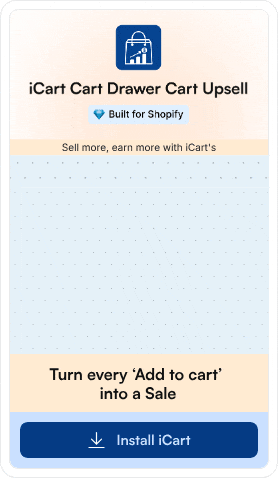
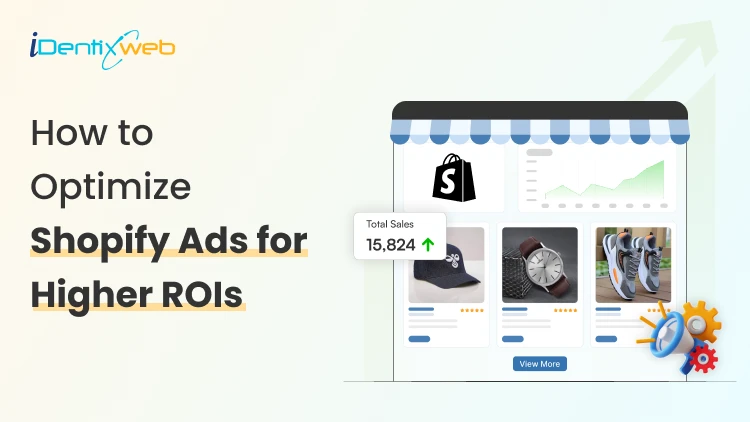
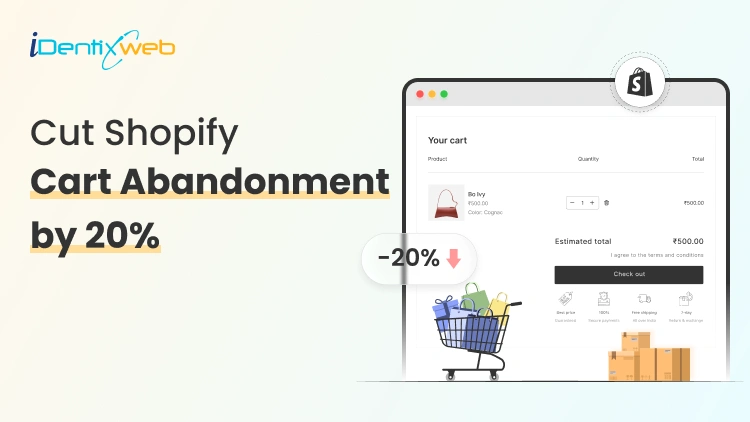
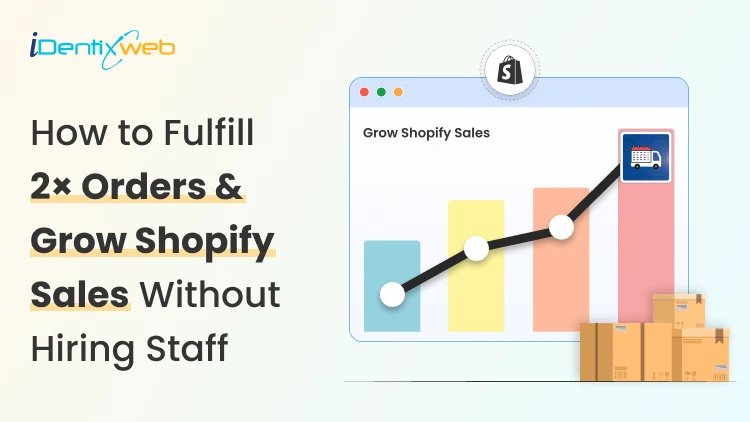

About the author
Bhavesha Ghatode
Explore Content with Bhavesha, a passionate and dedicated technical content writer with a keen understanding of e-commerce trends. She is committed to sharing valuable insights, practical assets, and the latest trends that can help businesses thrive in a competitive environment.